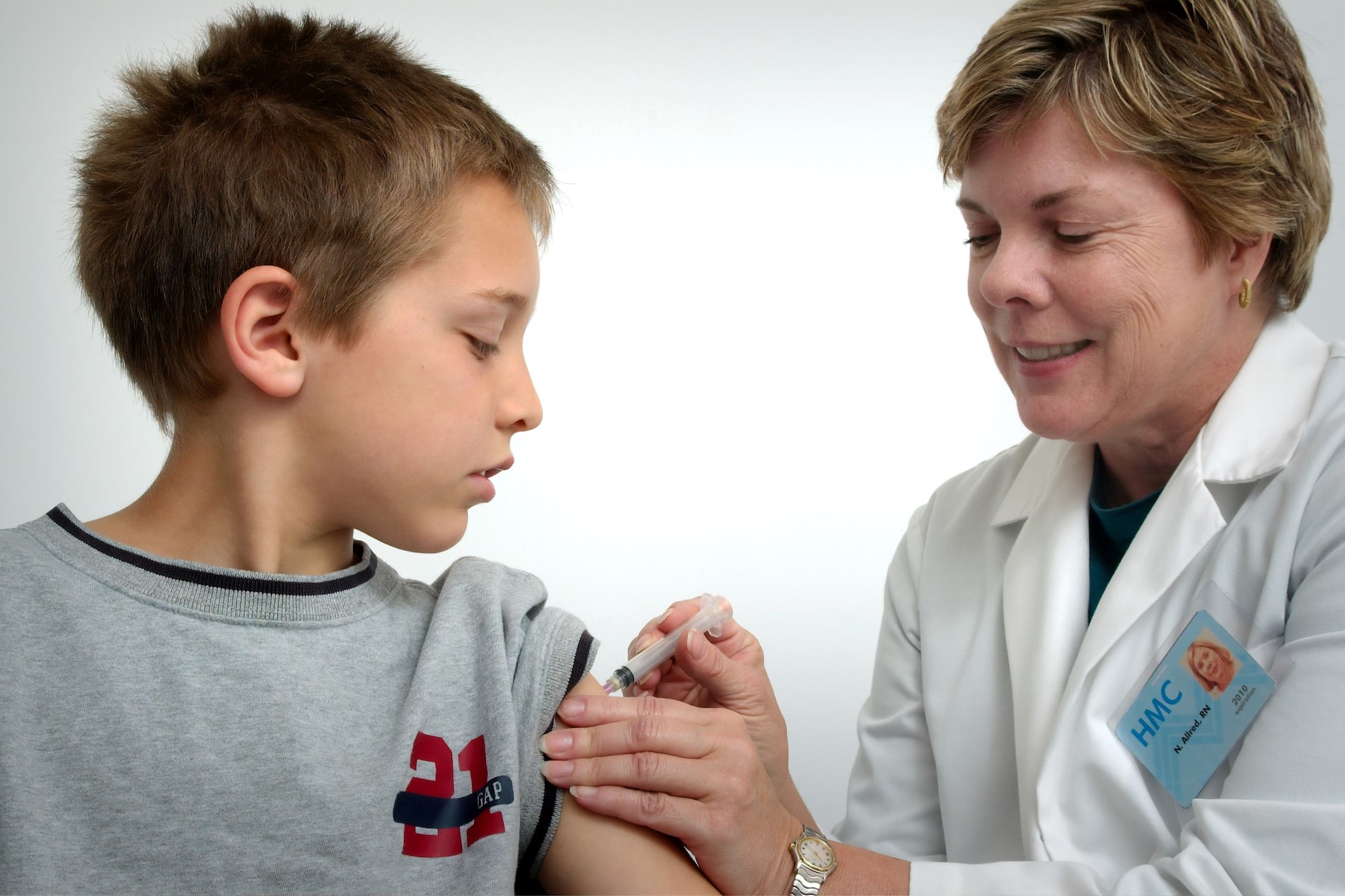What Vaccines Are Recommended For Children?
Best Vaccines for Your Children
Vaccination is one of the best ways to keep your child safe from harmful and deadly diseases. While babies get enough antibodies (proteins to fight disease) from their mothers’ breast milk, the immunity is only temporary and will eventually wear off over time. This is why doctors would always remind parents to get their infants and young kids vaccinated as early as possible.
Vaccines protect your child by fending off any germs or bacteria that may try to invade the body. They do this by stimulating the immune system to respond as if a real infection is present. Once an actual infection enters the body, the immune system already knows how to fight the disease-carrying germs.
Besides giving your little one the right vaccines, it’s also important to follow the schedule as instructed by your child’s pediatrician. The doctor will discuss with you the types of vaccinations ideal for your child as well as the recommended schedules.
Here are the vaccines usually advised for infants and older children. Before you decide which ones should be given to your child, talk to your pediatrician first:
1. Diphtheria, tetanus, and pertussis vaccine (DTaP)
The DTaP vaccine protects children against these three diseases:
- Diphtheria – This is a severe throat infection that can cause extreme breathing problems by blocking the airway. If left untreated, it can lead to a swollen heart, coma, paralysis, heart failure, and even death.
- Tetanus – This disease is caused by bacterial infection of skin cuts or open wounds. Tetanus is characterized by neck stiffness, muscle spasms, fever, and difficulty in swallowing. Untreated tetanus leads to breathing difficulty, broken bones, and death.
- Pertussis (whooping cough) – symptoms of this respiratory illness include a runny nose, severe cough, and apnea for infants. If left untreated, the disease may lead to pneumonia and death.
2. HepA vaccine
This vaccine keeps children protected from the hepatitis A virus (HAV), which causes nausea, jaundice, fever, dark urine, and nausea. The disease can be transmitted either by direct contact or through contaminated food. While some infected children may not show any symptoms, it’s still possible for them to spread the virus to other kids.
The HepA vaccine can be given to babies as young as 6 months old. It is usually recommended if the family is traveling to a place where the disease is rampant. If you’re planning a family vacation in another country, it’s best to talk to your pediatrician ahead of time.
3. HepB vaccine
To make sure that your child does not contract hepatitis B, give them the HepB vaccine. This disease has symptoms similar to those of hepatitis A, although it mainly affects the liver. If untreated, individuals are likely to develop liver failure, liver cancer, or chronic liver infection.
4. Inactivated poliovirus vaccine (IPV)
Children immunized with the IPV vaccine are protected from polio, which can be transmitted when the stool of an infected person is introduced into the mouth of another person through contaminated water or food. Symptoms of the disease include sore throat, nausea, headache, and fever. Extreme cases may lead to paralysis and death.
5. Varicella vaccine
The varicella vaccine is given to prevent children from developing one of the most common childhood viral disease: chickenpox. Anyone with the disease will experience symptoms such as tiredness, fever, rash, or headache. Possible complications of chickenpox include bleeding, infected blisters, pneumonia, and encephalitis (brain swelling).
6. Hib vaccine
Getting your child immunized with the Hib vaccine will lessen the risk of contracting the Haemophilus influenza type B bacteria, which is known to be the leading cause of the deadly meningitis disease in kids younger than 5 years old. There are hardly any symptoms for the disease unless bacteria has already entered the bloodstream.
7. Pneumococcal vaccine (PCV)
There are two types of PCV—the pneumococcal conjugate vaccine (PCV13) and the pneumococcal polysaccharide vaccine (PPSV23). The PCV13 vaccine protects children against 13 types of pneumococcal bacteria (which cause the most common pneumococcal infections in young kids). On the other hand, the PPSV23 vaccine prevents them from acquiring 23 types of the same bacteria. Serious cases of the disease include blood infection, meningitis, and death.
8. Flu vaccine
Flu vaccines are among the most popular types of vaccines for children, particularly during the flu season from October to May. The vaccine works to prevent influenza, which is a highly contagious viral respiratory infection that causes sore throat, fever, extreme fatigue, cough, muscle pain, and pneumonia.
9. Rotavirus vaccine
Rotavirus is a virus common in infants and young children. It is known to cause fever, diarrhea, vomiting, and dehydration. With the rotavirus vaccine, your child will not experience any of these symptoms. However, if your child has problems in their immune system or is suffering from gastrointestinal disease, it’s best that you consult your pediatrician first before having your child vaccinated.
10. Measles, mumps, and rubella vaccine (MMR)
The MMR vaccine protects children and infants against these diseases:
- Measles – Symptoms of this disease include rash, cough, fever, pink eye, and runny nose. If left untreated, the condition can lead to pneumonia, encephalitis, and death.
- Mumps – This disease can cause swollen salivary glands, fatigue, headache, muscle pain, and fever. Complications include encephalitis, meningitis, deafness, and inflammation of the testicles or ovaries.
- Rubella – This disease is characterized by swollen lymph nodes, fever, and sometimes rash
Before you get your child immunized, get your doctor’s clearance. Vaccination may not be a good idea if your child:
- Has received any other vaccines in the past month
- Is taking aspirin
- Is presently sick or experiencing a cold
- Has had a low platelet count
Your pediatrician will be the one to decide whether the benefits of vaccination will outweigh the possible risks it may bring to your child.
A Way to Help Ailing Kids and Yourself, Too
A donation of a vehicle you no longer need can make a huge difference in the lives of needy American children afflicted with serious illnesses. When you donate such a vehicle to Kids Car Donations, you will be helping fund vital programs intended to provide direct assistance to bed-ridden children of less fortunate families in your area.
You will also personally benefit from your charitable contribution since it’s 100% tax-deductible. We will promptly send you the sales receipt after your vehicle has been sold. You can then use this receipt to claim your tax deduction in the next tax season.
For more information about our vehicle donation program, check out our FAQs page. For inquiries, you may call us at 866-634-8395 or send us a message online.
You can make your car donation by filling out our secure online donation form or calling us directly. We accept almost all types of vehicles regardless of their age or condition. We also accept vehicle donations anywhere in the United States since we have vehicle donation programs in all 50 states.

Touch Children’s Hearts with Your Car Donation
Touch the hearts of ailing children with your kindness and generosity. Call Kids Car Donations today at 866-634-8395 and help restore their good health with your car donation!


